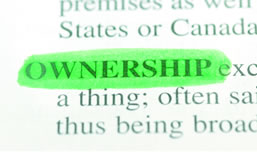Common issues of direct patent infringement: 2 – Importation of a product made by an infringing process
October 2017
There are a number of issues of direct patent infringement that frequently arise in the area of pharmaceuticals, biologics and medical devices. The answers to these are not, however, always straightforward and they may be treated differently between the UK and other national courts. Here, we continue our series of short articles on acts of direct infringement by considering the meaning of ‘imports any product obtained directly by means of that process’ under Section 60(1)(c) Patents Act 1977.
Section 60(1)(c) states:
a person infringes a patent for an invention if, but only if, while the patent is in force, he does any of the following things in the United Kingdom in relation to the invention without the consent of the proprietor of the patent, that is to say -
(c) where the invention is a process, he disposes of, offers to dispose of, uses or imports any product obtained directly by means of that process or keeps any such product whether for disposal or otherwise.
Section 60(1)(c) is therefore designed to prevent avoidance of a process patent that protects a particular country, by simply using the process in a country where there is no patent protection and then importing it into the country where there is. When applying the national equivalents of Section 60(1)(c), however, difficulties have arisen when interpreting whether a product is ‘obtained directly by means ofʼ a process.
In the UK, it is implicit in the reasoning of Kitchin J in Ranbaxy (UK) Limited AstraZeneca AB1, that the product of the process is normally that which the process itself specifies as its product. As a result, in Ranbaxy, there was no infringement by the importation of a product made in India using ≥99.8% e.e. optical purity magnesium esomeprazole – a process patented in the UK – with the addition of racemic magnesium esomeprazole to bring the optical purity outside the patented range before import. This decision interprets Section 60(1)(c) Patents Act as protecting against infringement of products only when they are the direct product of the process, without an intermediary.
This does not mean, however, that infringement is not necessarily avoided by further processing of the product of the process as specified in the patent. The question is where the line is to be drawn. In the German courts, a number of criteria characterise a “direct” product of a method, even when it has had further processing following the last method step of the patent. In particular, this may be established where the product possesses the qualities that are afforded by the patented method, and where it has such proximity to the patented method that it is in effect merely another manifestation of the product obtained at the end of the patented method2 .
In the UK case MedImmune v Novartis Pharmaceuticals3, the court appears to have in mind similar concepts to Germany. Here it was held that the product was obtained directly from a claimed process despite further processing, because there had been no ‘loss of identity’ – the product specified as resulting from the process of the patented invention retained its ‘essential characteristics'4. Although English law remains unclear at present as to how to approach ‘loss of identity’ and ‘essential characteristicsʼ, the judge in MedImmune gave the, non-binding, view that he prefers the approach of referring to the inventive concept of the relevant claim of the patent for this purpose5 .
There may therefore be little between the German and UK approaches to this aspect of infringement, but this requires further clarification. In the meantime, it cannot be assumed that infringement will be avoided by making changes to the product of a process before importation to a country where that process is patented
If you have any questions on this article or would like to propose a subject to be addressed by Synapse please contact us.
2Thomas Kühnen (translated by Frank Peterreins), Patent Litigation Proceedings in Germany (seventh edition, Heymanns Intellectual Property).
4 See Pioneer Electronics v Warner Music [1995] RPC 487.
5 Monsanto Technology LLC v Cargill International SA [2006] EWHC 2864 (Pat).


Dr Paul England
Paul is a senior associate and senior professional support lawyer in the IP/IT group, specialising in patents.
"English law remains unclear at present as to how to approach ‘loss of identity’ and ‘essential characteristics "

